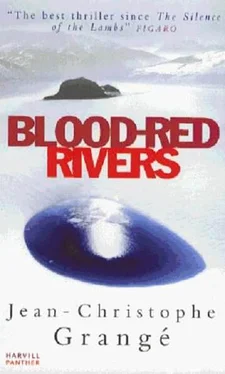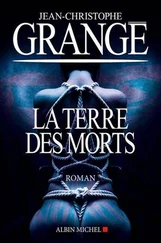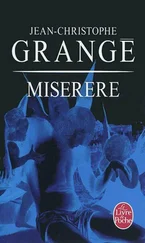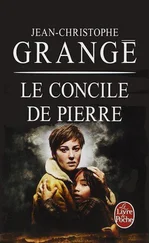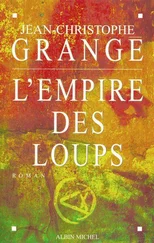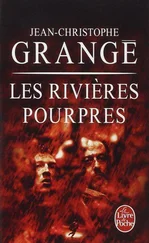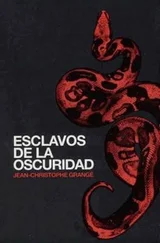"What are you after? He died in an avalanche. The one on the Grande Lance of Allemond, in '93. You're every inch a cop."
"So we have two rock-climbing librarians. Father and son. Who both died in the mountains. That is a bit of a coincidence, isn't it?"
"Who said that Rémy was killed in the mountains?"
"True. But he set off on a hike on Saturday morning. He must have been attacked by the killer up there. Perhaps the murderer knew the route he was tatting and…"
"Rémy wasn't the sort of person who follows regular routes. Nor one who tells others where he's going. He was very…secretive."
Niémans nodded his head.
"Thank you, young lady. You know the form – if you think of anything that may be of importance, then phone me on one of these numbers."
Niémans jotted down the numbers of his mobile and of a room which the vice-chancellor had given him at the university – he had preferred to set up base inside the university rather than with the gendarmerie. He murmured:
"See you soon."
The young woman did not look up. The policeman was leaving when she said:
"Can I ask you a question?"
She stared at him with her eyes of crystal. Niémans felt decidedly uneasy. Her irises were too light. They were made of glass, white water, as chilling as frost.
"Fire away," he replied.
"On the radio, they said…Well, is it true that you were one of the team that killed Jacques Mesrine?"
"I was young then. But it's true. I was there."
"I was wondering…What does it feel like afterward?"
"After what?"
"After something like that"
Niémans moved toward the young woman. Instinctively, she flinched. But, with a touch of arrogance, she bravely looked back at him.
"It will always be a pleasure talking to you, Fanny. But you will never get a word out of me about that. Nor about what I lost that day."
The questioner lowered her eyes. Softly, she said:
"I see."
"No, you don't see. Which is just as well for you."
The trickling water dripped onto his back. Niémans had borrowed a pair of hiking boots from the gendarmerie and was now ascending the natural staircase in the rock face, which was a reasonably easy climb. When he reached the height of the crevice, he took a careful look at the narrow opening where the body had been discovered. Then he examined the surrounding rock face. With his hands protected by Gore-Tex gloves he felt for possible traces of spits in the wall.
Holes in the stone.
The wind, laden with drops of icy water, beat against his face. It was a sensation Niémans liked. Despite the circumstances, he had experienced a strong feeling of fulfillment on reaching the lake. Maybe the killer had chosen this site for that very reason: it was a place of calm and serenity, pure and uncluttered. A place where jade waters soothed violent souls.
The superintendent found nothing. He continued his search around the niche: no trace of any spits. He knelt on the ledge and ran his hands over the inner walls of the cavity. Suddenly, his fingers came across an evident opening, right in the middle of the ceiling. He thought fleetingly of Fanny Ferreira. She had been right: the killer, equipped with spits and pulleys, must have hauled up the corpse by using his own body weight. He shoved his arms inside and located three notched, grooved cavities, about eight inches deep, and which formed a triangle – the three prints of the spits that had carried the pulleys. The circumstances of the murder were becoming clearer. Rémy Caillois had been set upon while out hiking. The murderer had strapped him up, tortured, mutilated then killed him in those lonely heights, and had then gone back down into the valley with his victim's body. How? Niémans glanced down forty feet below, there where the waters turned into a mirror of lacquer. On the stream. The killer must have descended the river in a canoe or something similar. But why had he gone to such lengths? Why had he not just left the body at the scene of the crime?
The policeman cautiously climbed back down. When on the bank, he removed his gloves, turned his back to the rocks and examined the shadow of the crevice on the perfectly smooth water. The reflection was as steady as a picture. He now felt sure that this place was a sanctuary. Calm and pure. And that was perhaps why the killer had chosen it. In any case, the investigator was now certain about one thing.
His killer was an experienced rock climber.
Niémans's saloon car was equipped with a VHF transmitter, but he never used it. No more than he used his cell phone when it came to confidential calls, it being even less secure. For the last few years, he had used a pager, varying from time to time its brand and model. No one else could intercept this form of communication, which necessitated a password. It was a trick he had learnt from Parisian drug dealers, who had immediately caught on to how discreet pagers were. The superintendent had given his number and password to Joisneau, Barnes and Vermont. As he got into his car he took it out of his pocket and switched it on. No messages.
He started his car and drove back to the university.
It was now eleven in the morning. Occasional figures crossed the green esplanade. A few students were running on the track in the stadium, which stood slightly away from the group of concrete blocks.
The officer turned at the crossroads and headed back toward the main building. This immense bunker was eight storeys high and six hundred yards long. He parked and consulted his map. Apart from the library, the huge construction contained the medicine and physics lecture halls. On the upper floors were the rooms set aside for practical work. And on the top floor there were the boarders' rooms. The campus janitor had marked, with a red felt-tip pen, the room occupied by Rémy Caillois and his young wife.
Pierre Niémans walked past the library doors, which were adjacent to the main entrance, and reached the hall: an open-plan construction lit by large bay windows. The walls were decorated with naïve frescoes, which shone in the morning sunlight, and the end of the hall, several hundred yards away, vanished into a sort of mineral haze. It was a place of Stalinist dimensions, utterly unlike the pale marble and brown wood of Parisian universities. Or, at least, that was what Niémans supposed. He had never before set foot in a university in Paris or anywhere else.
He climbed up a staircase of suspended marble steps, each block bent into a hairpin and separated by vertical strips. Something the architect had dreamt up, in the same overwhelming style as the rest. Every other neon light was broken, so Niémans crossed regions of utter darkness before emerging into zones of excessive brilliance.
He finally reached a narrow corridor, punctuated by small doors. He wandered down this black shaft – here, all the light bulbs had given up the ghost – looking for number 34, the Caillois's flat.
The door was ajar.
With two fingers, the policeman pushed the thin piece of plywood open. Silence and half-light welcomed him. Niémans found himself in a little hall. At the end, a stream of light crossed the narrow corridor. It was enough to enable him to make out the frames that hung on the walls. They contained black-and-white photographs, apparently dating from the 1930s or 1940s. Olympic athletes in full flight spiralled into the sky, or dug their heels into the ground, in postures of religious pride. Their faces, figures and positions gave off a sort of worrying perfection, the inhuman purity of statues. Niémans thought of the university architecture. It all fitted together in a rather uneasy way.
Beneath these images, he noticed a portrait of Rémy Caillois and took it down to get a better look. The victim had been a handsome, smiling youth with short hair and drawn features. His eyes shone with an extremely alert sparkle.
Читать дальше
